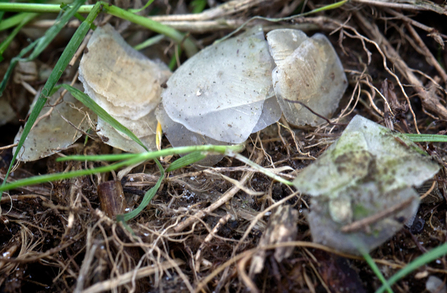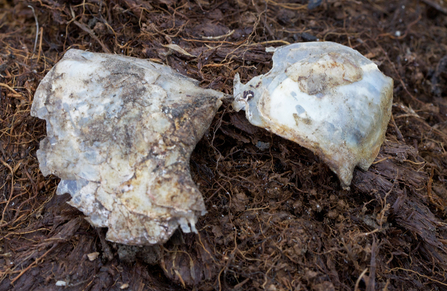Last week, when I posted the ‘fisheye’ view of inside the Dyfi osprey nest, I said I would blog this week about what Alan and I actually found in the nest.
Well, first of all, there was soil – loads of it. I’m always surprised about how much soil there is in an osprey’s nest at the end of a season. How does it get there? We saw both Monty and Nora bring plenty of sticks and branches to the nest, sometimes the odd cow-pat, but soil? Maybe it’s one of those life’s mysteries that is not meant to be solved, a bit like why didn't nature invent the wheel? Anyway, sprouting out of this soil there was plenty of grass and weeds!
Then, of course, there were fish scales, hundreds of them, if not more. We would expect to see these in the nest, of course, particularly considering that 47% of all the fish that Monty caught were Mullet, an especially scaly fish. All those old fish scales gave the nest a particularly pleasant aroma when the wind wafted in the wrong direction!


